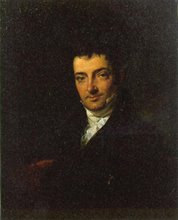The feast day of Saints Crispin and Crispinian is October 25

from wiki:
The Battle of Agincourt was fought on 25 October 1415 (Saint Crispin's Day), in northern France as part of the Hundred Years' War.
The armies involved were those of the English King Henry V and Charles VI of France. Charles did not command his army himself, as he was incapacitated. The French were commanded by the Constable Charles d'Albret and various prominent French noblemen of the Armagnac party. The battle is notable for the use of the English longbow, which the English used in very large numbers, with longbowmen forming the vast majority of their army.
Saint Crispin's Day
The feast day of Saints Crispin and Crispinian is October 25
What's he that wishes so?
My cousin Westmorland. No, my fair cousin:
If we are marked to die, we are enow
To do our country loss; and if to live,
The fewer men, the greater share of honour.
God's will, I pray thee, wish not one man more.
By Jove, I am not covetous for gold,
Nor care I who doth feed upon my cost;
It ernes me not if men my garments wear;
Such outward things dwell not in my desires:
But if it be a sin to covet honour,
I am the most offending soul alive.
No, faith, my coz, wish not a man from England:
God's peace, I would not lose so great an honour
As one man more, methinks, would share from me
For the best hope I have. O, do not wish one more.
Rather proclaim it presently through my host,
That he which hath no stomach to this fight,
Let him depart. His passport shall be made
And crowns for convoy put into his purse:
We would not die in that man's company
That fears his fellowship to die with us.
 I should also note that the English "giving the finger" derives from Agincourt: the English version is two fingers - like a peace sign - it was a defiant gesture of longbowmen who after the victory, waved them at Frenchmen who were told to cut off the index and middle fingers of any English longbowmen whom they captured.
I should also note that the English "giving the finger" derives from Agincourt: the English version is two fingers - like a peace sign - it was a defiant gesture of longbowmen who after the victory, waved them at Frenchmen who were told to cut off the index and middle fingers of any English longbowmen whom they captured.

No comments:
Post a Comment